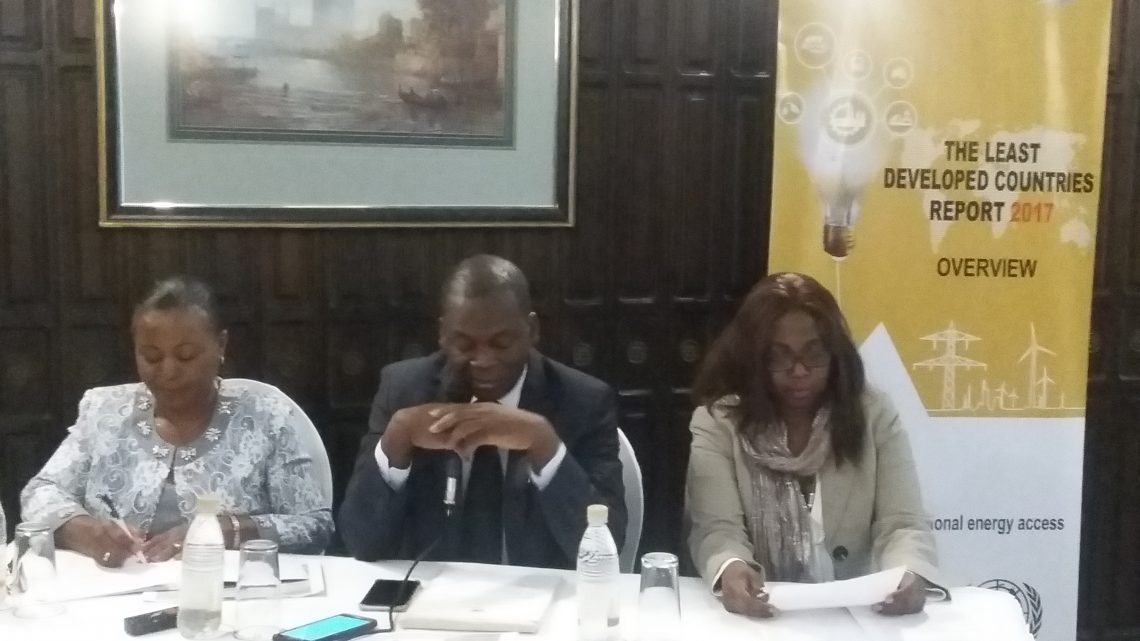By Byron Mutingwende
The launch of the Least Developed Countries Report 2017 whose focus is on energy and climate has been hailed as a timely document as it comes when the world is seized with mitigating the effects of climate change.
Speaking at the report launch, Tafadzwa Mwale, the Officer in Charge of the United Nations Information Centre in Harare said energy is a critical factor to human development.
“This report was produced by the United Nations Conference on Trade and Development (UNCTAD). Its publication is timely, as is its focus on energy and climate, at a time when the world is seized with mitigating the effects of climate change.
“Energy is a critical factor to human development and is important to all three pillars of sustainable development – social, economic and environment. Access to modern energy, and especially electricity has gained greater attention globally in recent years,” Mwale said.
Dr. Brassou Diawara, the knowledge management expert of the African Capacity Building Foundation (ACBF) said the report pays attention not only households but how it can be used to support the transformation of least developed countries.
“The report shows that 55% of people without access to electricity are in least developed countries (LDCS). On the other hand, 62% of LDCs have no access to energy, meaning around 557 million people have no access to energy despite the fact that one of the targets of the SDGs is to have energy access for all by 2030. To achieve that goal, around 51 million more people should have access to energy,” Diawara said.
He said LDCs are generating only 0, 8% of what other countries are producing. 42% of enterprises covered in the report said energy constraints were their biggest constraints to production. Three quarters of the enterprises said they face 5 hours of power outages resulting in a 7% revenue loss. The energy produced in LDCs is used in households and small-scale production while the Organisation for Economic Co-operation and Development (OECD) use their energy to develop their industries and transport.
The report has three key messages. It says in order to achieve universal access to energy. LDCs must go beyond meeting basic domestic needs and target productive uses. SDG 7 on affordable and clean energy is central to the realisation of many other SDGs. The access to modern energy is critical to all three main pillars of sustainable development. But in LDCs, the economic benefits of modern energy have been neglected. The productive use of modern energy is just as important as household use.
The report also notes that transformational energy access requires quality energy services. Energy access alone is not enough in LDCs but what is needed is transformational energy access. There is need to meet the needs of producers for energy services that meet the criteria of scale, affordability, economic viability, efficiency, reliability and accessibility.
Diawara said strengthening LDC energy systems requires a combination of long-term system-wide planning and coordination and flexibility.
“The effectiveness of system-wide energy planning hinges on policy consistency, realism and a sound information base. Capacities must be built for incorporating gendered approaches into energy programmes and projects.”






